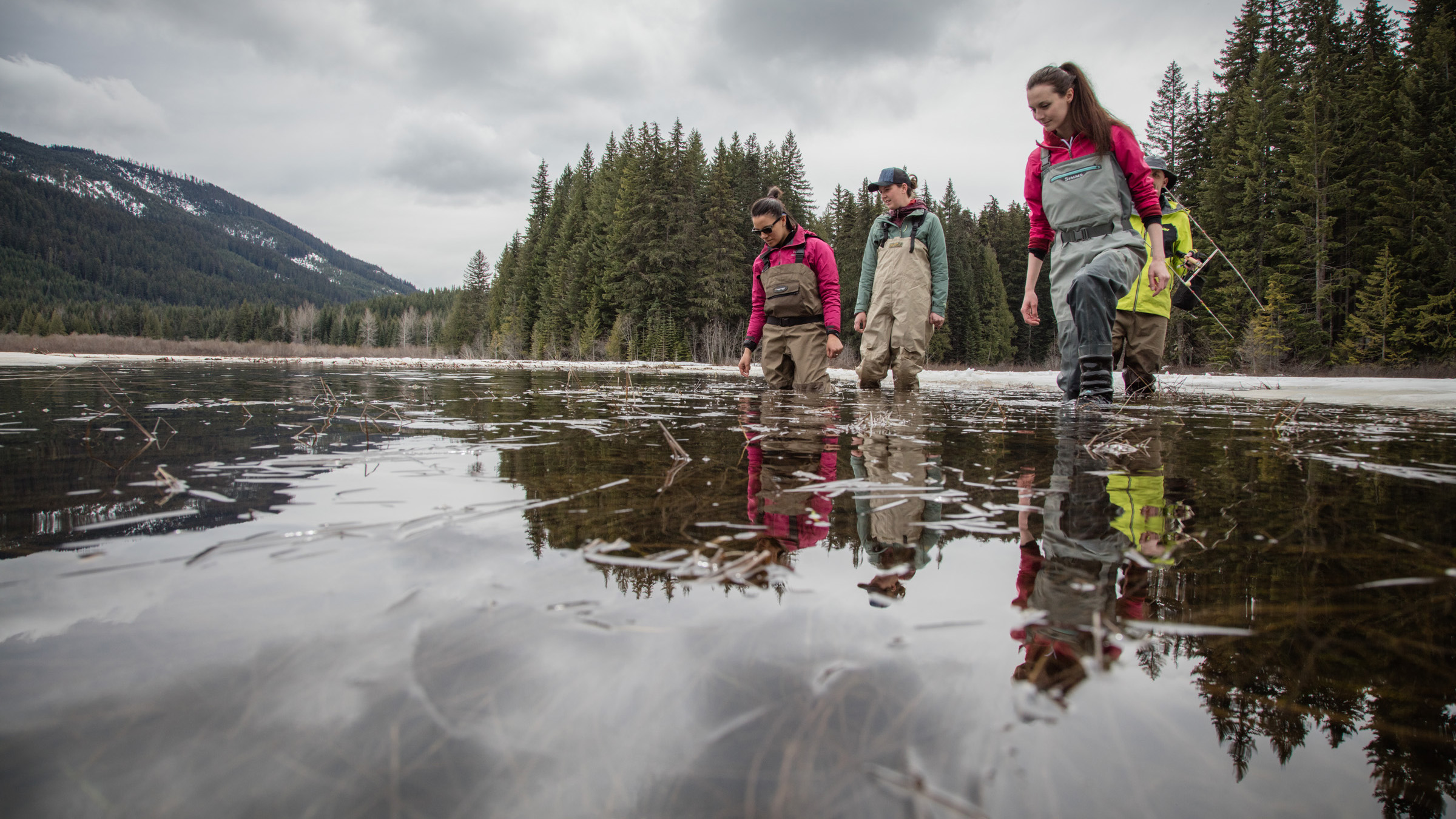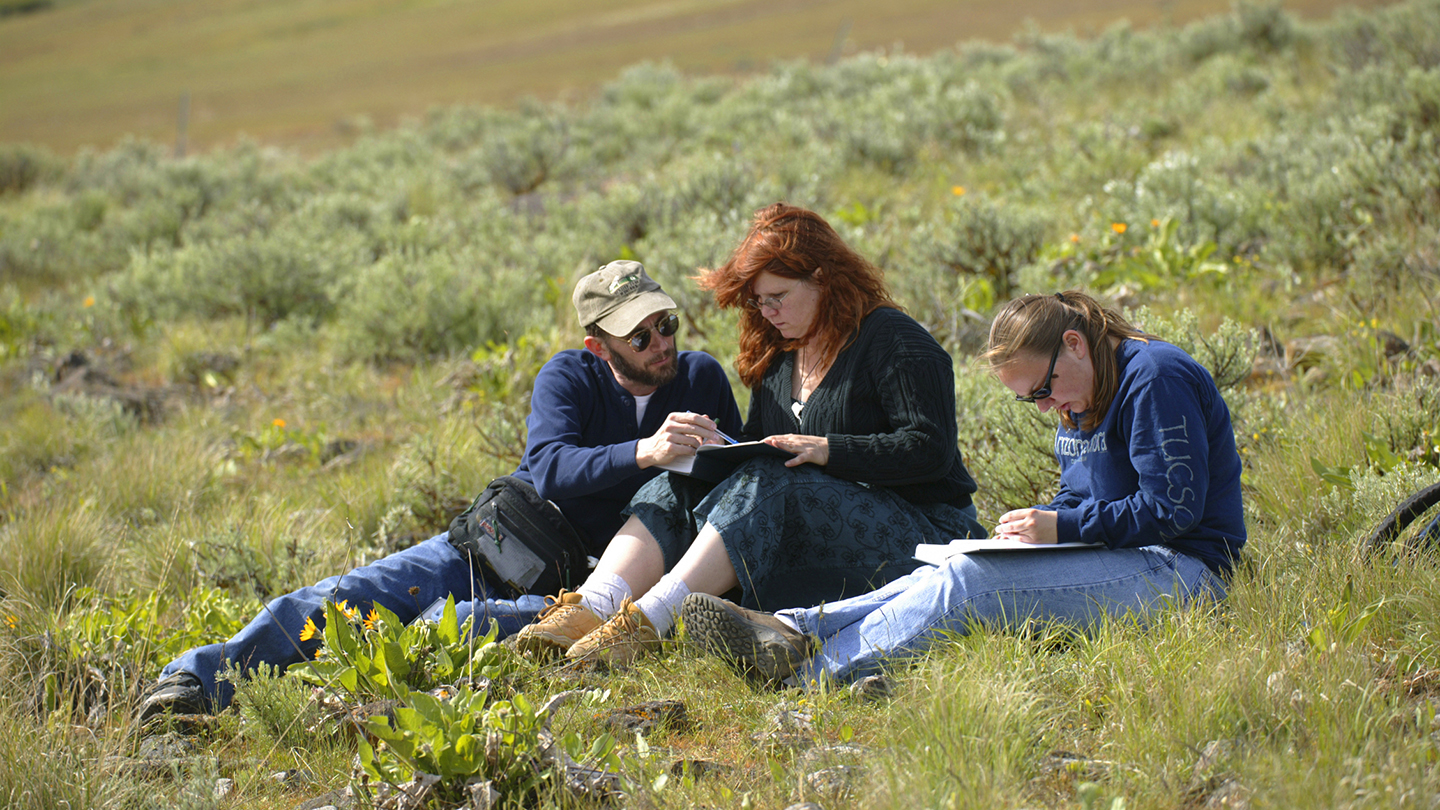
Biological Sciences
Biology, BS—Ecology and Evolutionary Biology Specialization
About the Ecology and Evolutionary Biology Specialization
The Ecology and Evolutionary Biology Specialization explores the fascinating world of life sciences. You will study intricate interactions between organisms and their environments, evolutionary processes that shape biodiversity, and the dynamic ecosystems on our planet. Throughout this program, you will develop a deep understanding of ecological principles and evolutionary theories.
Visit Department WebsiteWhy Study Ecology and Evolutionary Biology at CWU?
If you’re interested in basic and applied biology, natural resource management, ecological restoration, conservation biology, animal behavior, and biological field research, this specialization is for you.
Gain experience in natural history, field research, and experimental design at CWU. Our faculty are highly qualified and experienced in their fields, with expertise in areas such as wildlife ecology, conservation biology, evolutionary biology, and ecosystem ecology. They are committed to providing you with an engaging education with many opportunities to gain hands-on experience in the field.
Where is this program offered?
How much does this program cost?
Explore information on Cost, Aid, and Value to make an informed decision about investing in your education at CWU.
Where can I find more information?
Please visit the CWU Academic Catalog for current information about admission requirements, course descriptions, learner outcomes, and credit information.
Careers and Opportunities
Graduates of Ecology and Evolutionary Biology are equipped with the knowledge and skills to contribute to the advancement of ecological and evolutionary research, conservation efforts, and environmental management through a variety of careers.- Ecologist: As an ecologist, you can work in research, monitoring, and management of ecosystems, studying the interactions between organisms and their environments.
- Environmental Scientist: Environmental scientists study the impacts of human activities on the environment. You can work in government agencies, consulting firms, or non-profit organizations, conducting environmental assessments, monitoring pollution, analyzing data, and developing strategies for environmental management and conservation.
- Field Biologist: Field biologists conduct research and collect data in various ecosystems, including forests, wetlands, deserts, or marine environments.
- Science Educator: Think about pursuing a career in education, teaching biology, ecology, or environmental science at various educational levels. You can also work in informal education settings, such as museums, nature centers, or environmental education organizations.
Highlights
A Wealth of Scholarships in Biology
At Central Washington University, we believe that everyone deserves access to quality education, regardless of their financial background. View Undergraduate Biology Scholarships and Research Funding.
Join the Biology Club
Expand your community at Central Washington University by participating in clubs and activities. Meet your fellow Wildcats and gain knowledge outside of the classroom by joining a Biology Club, including Pre-Medicine Club and Pre-Veterinary Club.
Related Programs

Majors
Actuarial Science, BS
Get ready for high-demand actuary careers with CWU's Actuarial Science, BS. Prep for professional exams today.

Majors
Anthropology, BA
Learn about the benefits of an Anthropology Major from Central Washington University.
Questions? Contact Us.
Department of Biological Sciences
Science Building, Room 338
Dr. Holly Pinkart
(509) 963-2710
pinkarth@cwu.edu